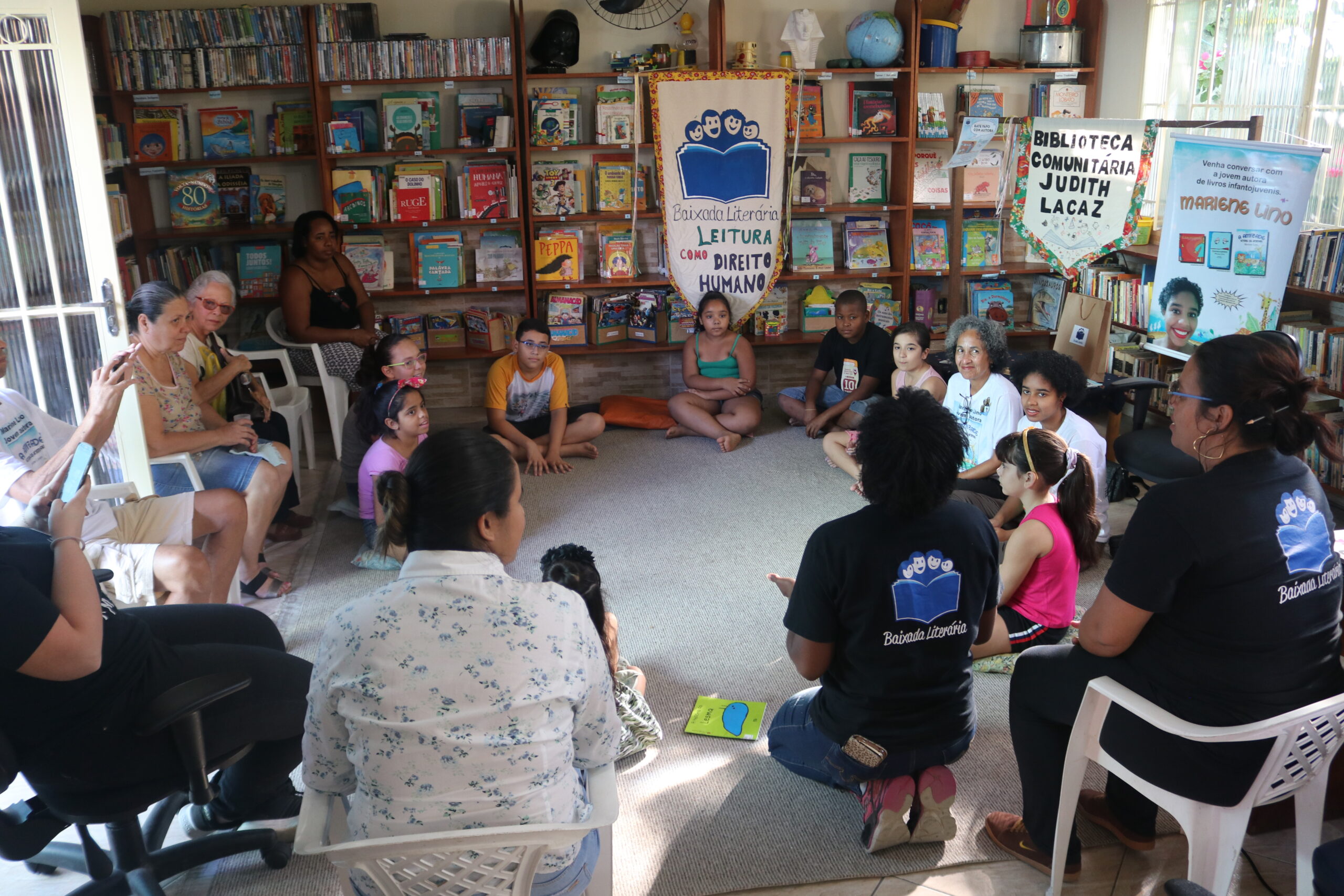
Made up of 20 community libraries in the peripheral neighborhoods of Nova Iguaçu, the Baixada Literary Network is an all-female collective which has worked since 2011 to inspire reading and critical literacy, and change the reality in its communities through reading and literature. In this report we interview four literacy mediators from the Baixada Literary Network: Mônica Verdam, Natália Reis, Ana Paula Rodrigues and Isabel Silva.
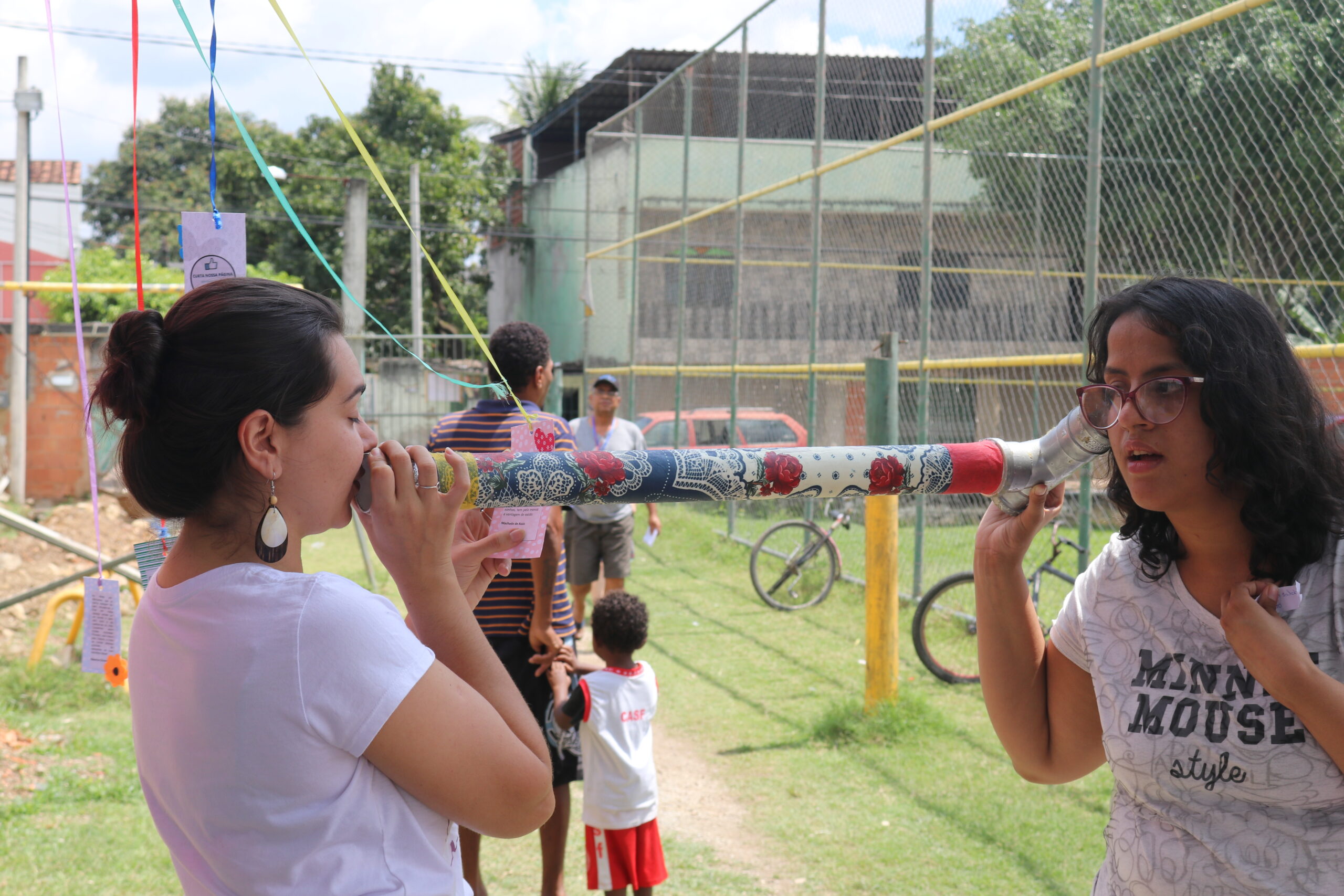
The community libraries of Nova Iguaçu understand access to literature as a human right and, in this sense, exercise an important role in the discussion and establishment of a literate society. Among their activities are book lending, literary games, storytelling, author chats, soirées, reading circles, book clubs and the ‘traveling suitcase’ whereby readers put books in a suitcase and leave the library in the direction of other readers’ homes.
Community Libraries and Human Rights
Sociologist and literary critic Antonio Candido argued that the right to literature is a basic right, like the right to food, housing, clothing, and health care. In his essay The Right To Literature, Candido affirms that art and literature manifest “from the romantic or economic daydreaming on the bus to the attention fixed on TV soap operas or the subsequent reading of a novel… look, if anyone can spend 24 hours without diving into the universe of fiction and poetry, of literature understood in the broad sense… it seems to correspond to a universal need that must be satisfied and whose satisfaction constitutes a right… we can say that literature is the waking dream of civilizations.”
Mônica Verdam, 53, the Baixada Literary Network’s coordinator of resource mobilization and partnerships, says that it is precisely the violation of rights which is the catalyst for the network’s activities:
“The history of community libraries starts with the feeling and experience of having rights violated. Starting from the understanding that reading and literature [are] an instrument for growing knowledge, building liberty, creativity and autonomy, [we make the] connection with human rights. This reflection enhanced by the philosophy of Paulo Freire and Antonio Candido served to reinforce our concept. If something is essential for someone’s life in a positive way, it becomes essential for everyone’s life. This is human rights.” — Mônica Verdam
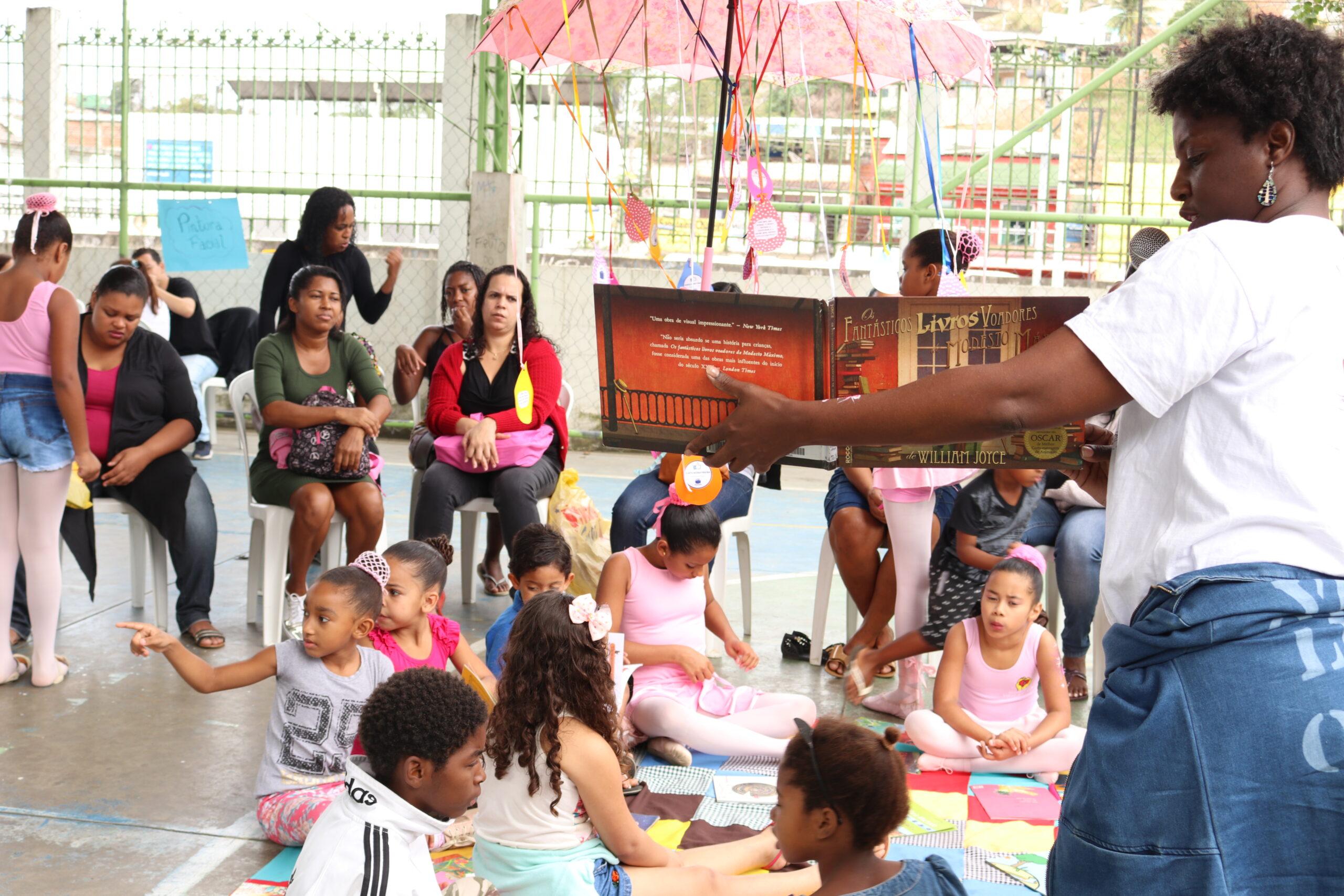
Literacy mediator Isabel Silva, 20, explains that the basis of the work in community libraries is the Pleasure in Reading Program (PPL) methodology, designed to develop feelings of belonging and acceptance in young readers. She describes the methodology as “a social technology comprised of nine guiding axes for community library activities, these being: Shared Management, Communication, Resource Mobilization, Advocacy, Community Rooting, Space, Collections, Literacy Mediation and Coordination. These are all put into practice through a work plan which guides the library activities and is created and executed by the team which makes up the collective.”
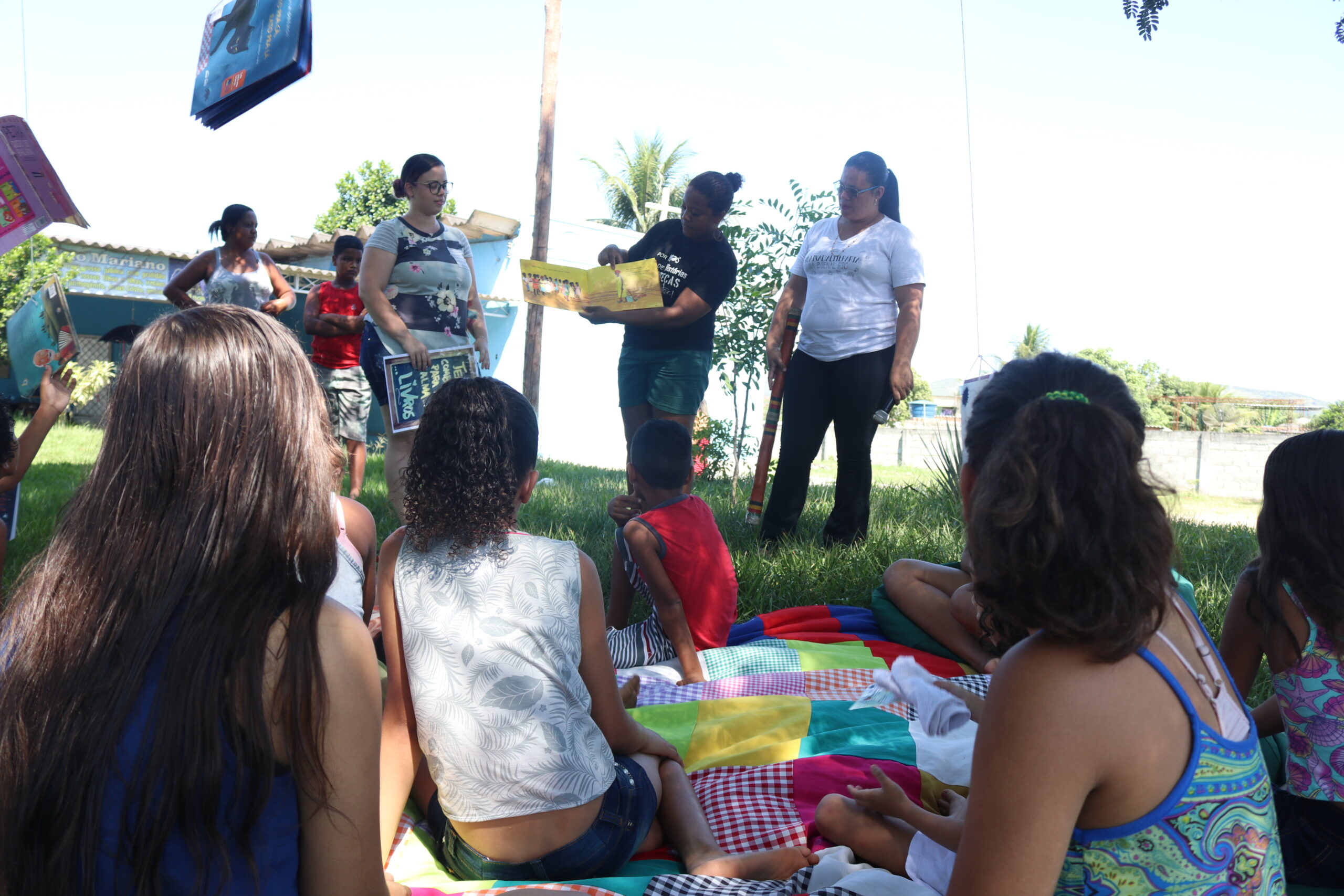
“For me, one of the things which differentiates us is the way we offer the public autonomy within the libraries. In our spaces, we incentivize readers to actively participate in various processes which take place day to day, with the intention that they develop a sense of belonging and can see themselves and find themselves in this environment. The community libraries in the network came about with this intention of being welcoming spaces of knowledge-building in peripheral areas where basic rights are often disregarded.” — Isabel Silva
Literacy mediator Ana Paula Rodrigues, 37, said “the [community] library is a tool for reading and cultural practices, for welcoming and a lot of knowledge. Most of the time it’s the only information space in the neighborhood. We are important for training readers and citizens.” She added: “Every citizen has the right to quality literature, not just the didactic and informative. Those who have access to literature can see better.”
The Nova Iguaçu Municipal Plan for Books, Reading, Literature and Libraries (PMLLLB/NI)
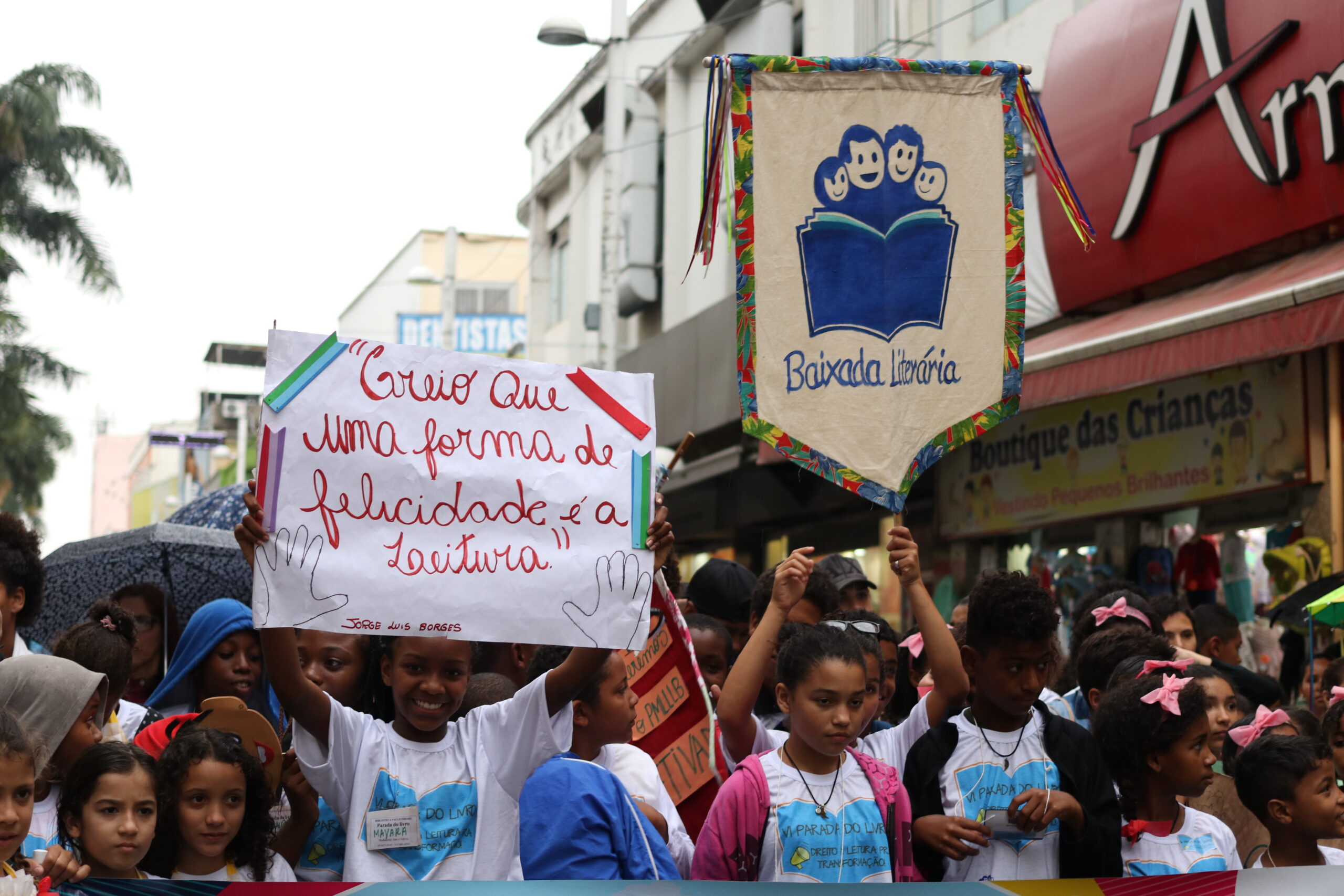
Law No. 4,439/2014 established the Nova Iguaçu Municipal Plan for Books, Reading, Literature and Libraries (PMLLLB), the first such municipal plan in Brazil with allocated resources. For Verdam, the PMLLLB is a huge achievement, but the network’s greatest victory is attracting new readers to community libraries. “We work with an emphasis on the political advocacy of books from the perspective of effective policy in the city of Nova Iguaçu… Historically, access to literature has been elitist and excluded the more vulnerable population. Working in peripheral neighborhoods is a way of rebuilding history, bursting the bubble of exclusion and stigma that has long perpetuated the idea that the Brazilian people, like those in the peripheries, don’t like reading. The great problem is in access and manipulation [of information] that means there’s little critical thinking in the most vulnerable layers of society,” said Verdam.
On this, the literacy mediator and advocacy coordinator, Natália Reis, 30, highlighted the importance and reach of the community libraries’ activities, recalling her own development as a reader and citizen.
“Unfortunately we still hear that Brazilians don’t like reading. But we understand that, really, there isn’t much access. Cultural activities usually happen in a centralized way. Community libraries do the opposite work, giving these communities access to an organized space with a quality collection, and literacy mediators trained to work with the public, not just in terms of skills but with care. When I was a child I was a reader at one of the network’s community libraries and someone did the work I do today with me. The wheel turns and we want to always have the strength to keep it turning and reach many more communities.” — Natália Reis
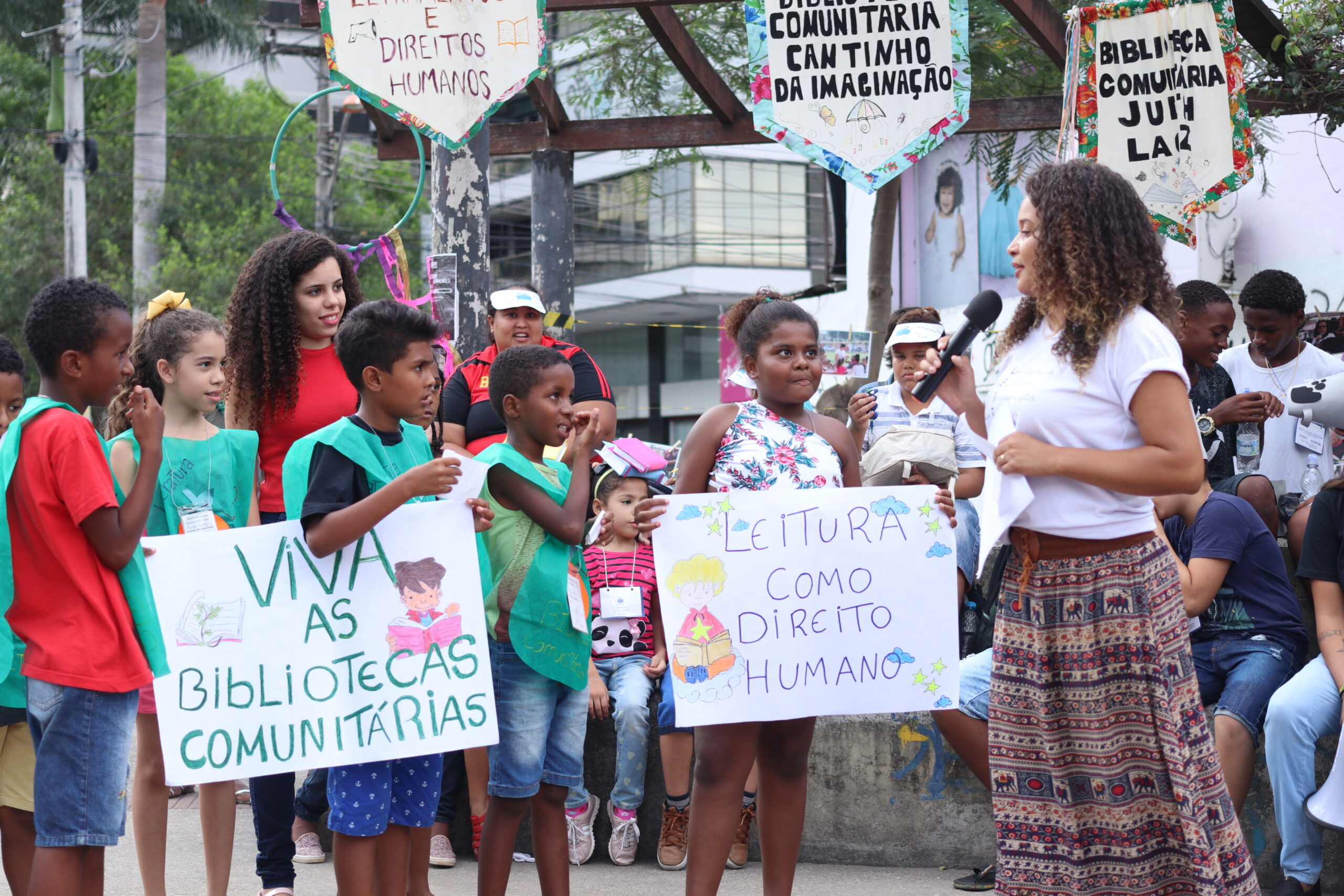
The Baixada Literary Network is also one of the organizers of the Nova Iguaçu Literary Festival (FLINI) which aims to democratize access to books, reading, and literature, incorporating artistic expressions and valuing local culture. Other initiatives include a short course on Literacy and Human Rights in partnership with professor Adriana Carvalho Lopes from the Federal Rural University of Rio de Janeiro (UFRRJ); the Books for Flying project in partnership with the Nova Iguaçu Educational and Cultural Foundation (FENIG); and the Book Stop. All these activities take place in public spaces under the PMLLLB.
The Baixada Literary Network is the concrete result of the struggle and resistance of these women literacy mediators’ determination to spread and circulate literature as a basic right. As Reis commented: “literature stimulates and feeds our imagination, which is the essence of our humanity. It provokes and makes the exercise of empathy possible to the extent that we put ourselves in the place of the other. It also contributes to the development of our linguistic repertoire, increasing our capacity for communication. [Literature] also offers us ways of understanding the development of the world and knowledge produced throughout history.”
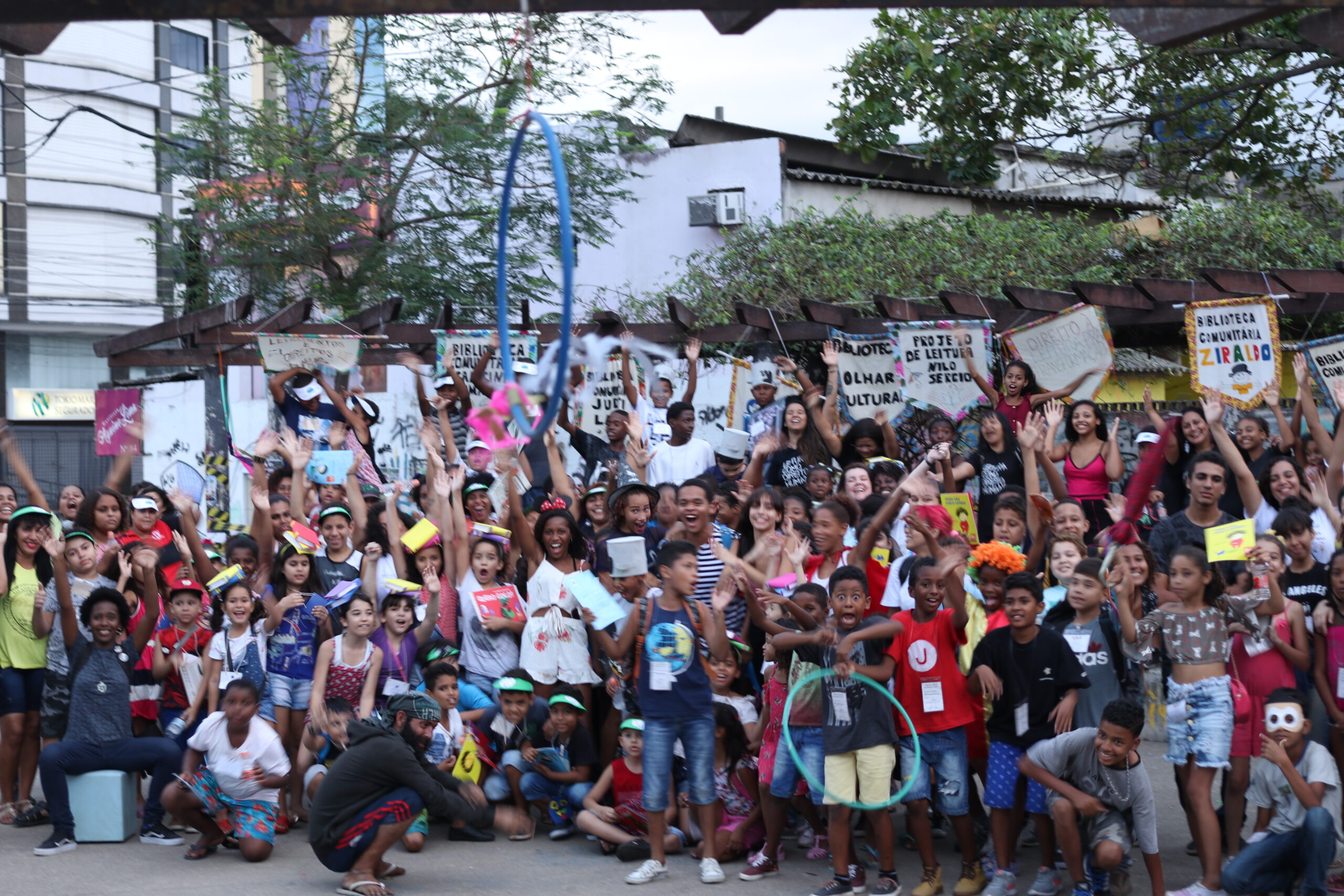
The Baixada Literary Network recently secured funding under the Our Choice parliamentary amendment, proposing the realization of literacy mediation activities, a cultural program, acquisition of a physical collection, and maintenance of community library activities. For now the network is awaiting the transfer of allocated funds. Should this be delayed, the community libraries will have to reduce their budgets and opening hours in 2023, relying solely on volunteers.
